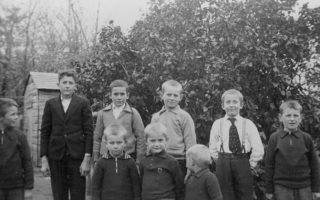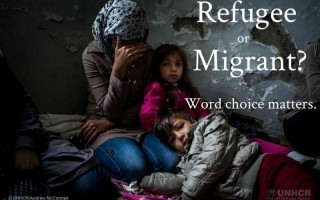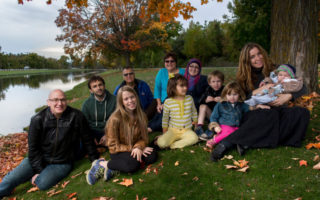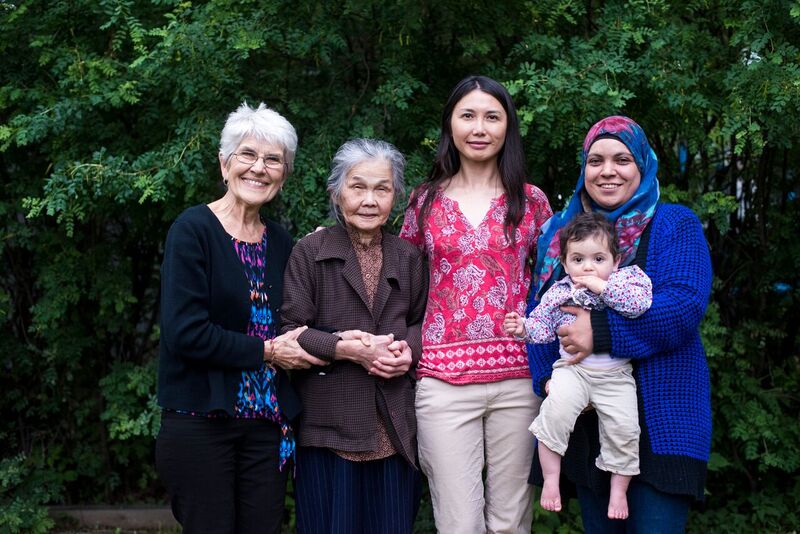
About 40 years ago Edmontonian Leona Heuver (far left) helped to sponsor Vietnamese refugee Huong Tran (2nd left) and her five children, including Nhung Tran-Davies (middle). In turn, Dr. Tran-Davies is now helping to sponsor a Syrian family, including Somaya Alchabli (far right), holding her daughter Jenna.
You have often heard us at UNHCR raising the alarm about populist rhetoric that demonizes refugees, asylum seekers or migrants. In Canada, like in many Western countries these days, terms such as “illegals” or “refugee crisis” are used to describe those arriving at our borders seeking safety and protection.
The underlying message of this terminology is that hordes of questionable people are poised to take our jobs, live off our social services and possibly engage in criminal activity. Doubt, even fear, can be the result of this rhetoric, pushing some of us to believe it would be wiser, if not safer, to close our country’s doors.
UNHCR estimates that in 2018, 25 million people had no choice but to leave their homes—this is an unprecedented level of displacement. Why did they leave behind family, homes, jobs, possessions, and almost every shred of their lives? Because they did not want to die. Because they wanted to live.
Not all were able to arrive at a country’s official ports of entry or with valid travel documents. Many were forced to take unbelievable risks, putting their lives in the hands of unscrupulous smugglers, joining “caravans” or boarding flimsy inflatable dinghies. The overwhelming majority—close to 90 per cent —remain in Africa, the Middle East, Asia or Central America, where poor communities continue to welcome them and support them in exile. Very few will ever make it to the shores of Europe or North America.
Statistics show that refugees—those who arrive spontaneously to claim asylum or the 0.6 per cent of those who are resettled to a Western country as a life-saving intervention—integrate well. They become active, productive members of societies that welcome them, creating jobs for themselves and others, excelling in school, and making our communities richer in so many ways, economically, culturally and socially.
And despite all these well-documented arguments, we sometimes still lose public trust on these issues. As the rhetoric ramps up, people who straddle the middle of the political spectrum become more anxious and may start to align themselves with fear-driven views. Often, they have legitimate questions around safety, such as “Are refugees screened before being accepted?” (Yes, and they undergo stringent security checks.)
We have used humanist arguments related to solidarity, ethics, faith, and/or adhering to human rights principles. We have repeated facts and figures proving there is nothing to fear. We have sought to bring the voices of refugees to the fore and connect people to stories of human suffering and resilience.
But this isn’t enough. We all have to do our part to combat the inflammatory rhetoric and the misinformation surrounding refugees. We can make a difference by spreading positive messages about refugees—I think of Annette Riziki or Ahmad Abed. Knowledge and understanding are incredibly powerful tools that when wielded by Canadians, will make a difference in the lives of countless refugees around the world. Your voice matters in these times when some of our own friends, family or colleagues may question whether we should keep our doors, if not our hearts, open in Canada. I know we can count on you to diffuse the negative rhetoric and help us maintain a Canada that is welcoming to those fleeing for their lives.
Jean-Nicolas Beuze is the UNHCR’s Representative in Canada. You can follow him on Twitter at @jnbeuze
